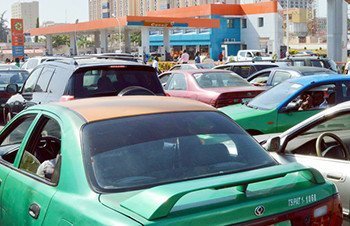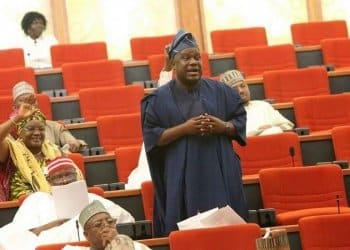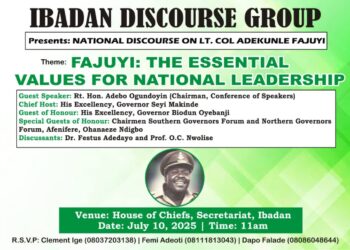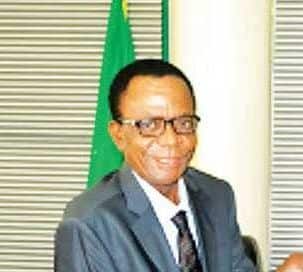The National Economic Council (NEC) has advocated palliatives for employees and disadvantaged groups to lessen the negative consequences of removing fuel subsidy.
This was done in response to President Bola Ahmed Tinubu’s request that the council develop interventions.
The governor of Bauchi State, Bala Mohammed, announced this on Thursday following the lengthy inaugural NEC meeting.
He said that the council considered proposals from the National Salaries Income and Wages Commission to pay federal personnel a cost-of-living allowance of N702 billion as part of the intervention plans.
Vice President Kashim Shettima presided over the meeting at the Presidential Villa, where it was also revealed that a committee would be formed to determine the best way to organise and distribute the palliatives within two weeks.
Mohammed said the interventions included a proposed petroleum allowance for civil personnel ranging from N23.5 billion to N45 billion per month. Four other governors joined him: Dapo Abiodun (Ogun), Dikko Radda (Katsina), Alex Otti (Abia), and Yahaya Bello (Kogi).
He added that, as part of its efforts to lower fuel prices, the council also reviewed the potential for funding from the World Bank and London partners to implement the Compressed Natural Gas (CNG) initiative for automobiles in the nation.
The presenter provided a variety of scenarios regarding national salaries, income, and wages; this N702 billion plus was proposed as an allowance for the cost of living adjustment allowance by organised Labour, and the other is a petroleum allowance.
“The governor of Ogun has told you that there are other allowances here and there, but concerning labour, these are some of the few allowances they have suggested. They also stated that the petroleum allowance will range from N23.5 billion to N45 billion per month, depending on how much money is available for distribution or sharing.
“So, the N702 billion is a suggested sum for Labour to cushion the effect on workers on a new allowance that will be tagged cost of living adjustment allowance,” he said.
Mohammed disclosed that to address the issue of workers and other vulnerable groups, the Council established a committee to examine the situation and develop a term of reference for organised areas particularly where the palliatives can arrive and how they would be administered.
He named the committee’s members, starting with the chairman, the governor of Kebbi; Anambra, who represents the South-East geographical zone; and the governors of Kaduna (North West), Benue (North Central), Bauchi (North East), Cross River (South-South), and Oyo (South West).
He added: “Other relevant agencies were also included. They comprised a representative of the budget office, a representative of the CBN, a representative of the Office of the Attorney General of the Federation, a representative of NNPC, representatives of TUC and NLC and of course, Rukayat El-Rufai so that we can sit within two weeks to come up with a recommendation to NEC for a wholistic decision that will be taken immediately to alleviate the problem that may be encountered by the removal of the subsidy.”
The governor of Bauchi stated that the recommendations made by the earlier palliatives committee, which was established and presided over by former vice president Yemi Osinbajo, would not be ignored but instead would be incorporated into the ongoing process.
The governor of Ogun State, Dapo Abiosun, said in his remarks that the oil industry, represented by DAPPMAN officials, had given recommendations to the Council on how to lower the petrol price.
He claimed that the organisation encouraged the government to lower the tariffs on petroleum goods that the NPA, NIMASA, and other government organisations are collecting.
The governor continued by stating that Mele Kyari, Group Chief Executive Officer of the Nigerian National Petroleum Corporation Limited (NNPCL), had informed the business that the cost of petrol had increased in adjacent nations due to the elimination of subsidies.
He pointed out that those bordering nations have depended on Nigeria’s fuel subsidies.
According to Abiodun, the NNPCL CEO reportedly advised that Nigeria start exporting fuel to her neighbours who have limited ability to import the good.
“We decided that we would have an oil and gas subcommittee of the NEC that will look at the issues that have been brought to the forefront or by the marketers, by the regulator – NNPC – to ensure that we harmonise report back to NEC and if NEC adopts it we will present it to Mr President,” he added.
The governor also stated that when the local refineries start operating at full capacity, the price of fuel will reduce by N40.
In his speech, Governor Dikko Radda of Katsina State stated that the administration has asked the World Bank for more funding for the NG-Cares initiative to lessen the impact of subsidy elimination.
Additionally, Governor Alex Otti of Abia State said that after hearing a presentation from the National Automotive Design and Development Council, the NEC considered offering legislative support to regional automakers.
He noted the need for legislative backing and mentioned that some local automakers had already started producing CNG and electric vehicles, which can ease the demand for fuel.
According to estimates, if we assist these enterprises with legislation, about a million jobs might be created out of the 50,000 already available.










